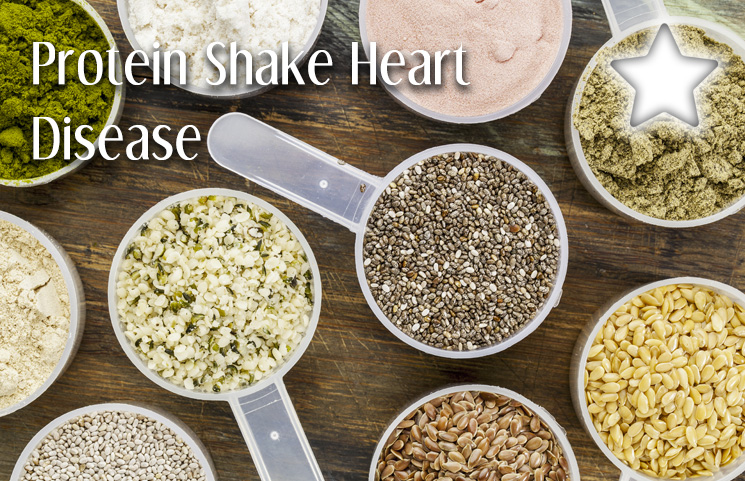Researchers in the UK have discovered that a specific type of protein shake can reduce your risk of heart attack and stroke.
Can Protein Shakes Reduce Heart Disease?
According to new research, people with mild hypertension who drank whey protein supplements were able to reduce their risk of heart disease and stroke by 8%.
Whey protein shakes are the standard protein shakes favored by bodybuilders and fitness enthusiasts. Whey is a derivative of dairy milk.
The study was performed by researchers at the University of Reading. One researcher on the study, Agnes Fekete, praised the trial, saying, “The results of this trial are very exciting. It shows the positive impact that dairy proteins can have on blood pressure.”
Fekete followed it up by explaining we’ve always known people who drink milk tend to be healthier, but we never knew the specific reasons why:
“Long-term studies show that people who drink more milk tend to be healthier, but until now, there has been little work to evaluate how dairy proteins affect blood pressure in particular.”
Now, thanks to this latest research, we have evidence that dairy proteins reduce the risk of heart attack and stroke.
How Did the Study Work?
How exactly did researchers determine the impact of whey protein on the heart? The research was led by Professors Julie Lovegrove and Ian Givens, who work for the University of Reading’s Hugh Sinclair Unit of Human Nutrition.
Interviewed for the study, Professor Givens said, “By giving people a high dose of whey protein, similar to the amount used by athletes, we were able to see a significant impact over an eight-week trial.”
The study specifically looked at the health benefits of drinking two protein shakes per day for a total of 8 weeks. Researchers then looked at a range of different heart and cardiovascular health markers, including things like blood pressure, arterial stiffness, and cholesterol.
The double-blind, randomized controlled trial required participants to drink 56 grams of protein per day. This dose was described as “equivalent to protein supplements used by bodybuilders.”
A total of 38 pre and mild hypertension participants were involved in the trial. by the end of it, researchers identified several positive effects on cardiovascular health, including:
-Significant reductions in blood pressure for the 24 hours after consuming protein shakes (systolic BP -3.9 mm Hg; diastolic BP -2.5 mm Hg, compared with after control intake)
-Decreased triacylglycerol, which is a type of fat found in the bloodstream and has been linked to heart disease at elevated levels
What Type of Protein Powder Was Used?
Researchers did not identify the specific type of protein powder used. However, they weren’t testing specific brands: they were just analyzing general whey protein.
The protein powder was described as a “commercially available whey protein powder mixed with water, and tested alongside a casein supplement”. Casein is a different form of milk protein, typically used by bodybuilders who want to force their bodies to digest protein more slowly over a long period of time, as casein takes longer to digest.
The protein group was then compared against a control group that used a supplement containing maltodextrin (a type of carb). The study was performed in a randomized, controlled, double-blinded, three-way crossover setting.
Another interesting aspect of the study was the fact that participants did not experience any weight gain while taking the protein powder – despite the fact that the protein supplements contributed 214 kilocalories to each individual’s diet, which is approximately 10% of the recommended daily calorie intake.
However, participants were asked to exchange the protein for other foods in their diet.
“Further Studies Are Required to Confirm these Results”
Obviously, many fitness enthusiasts are getting excited about the fact that protein supplements can reduce their risk of heart disease. However, lead researcher Professor Lovegrove cautioned that more research was required before cardiologists started telling all of their patients to drink protein shakes:
“One of the important impacts of this study is that whey protein may have a role, as part of a healthy diet, to reduce risk factors for cardiovascular disease, although further studies are required to confirm these results.”
72 million Americans suffer from high blood pressure, which is the primary risk factor for heart disease and stroke. According to this latest report, taking a whey protein shake every day can lower your high blood pressure, significantly reducing your risk of heart attack and stroke.









